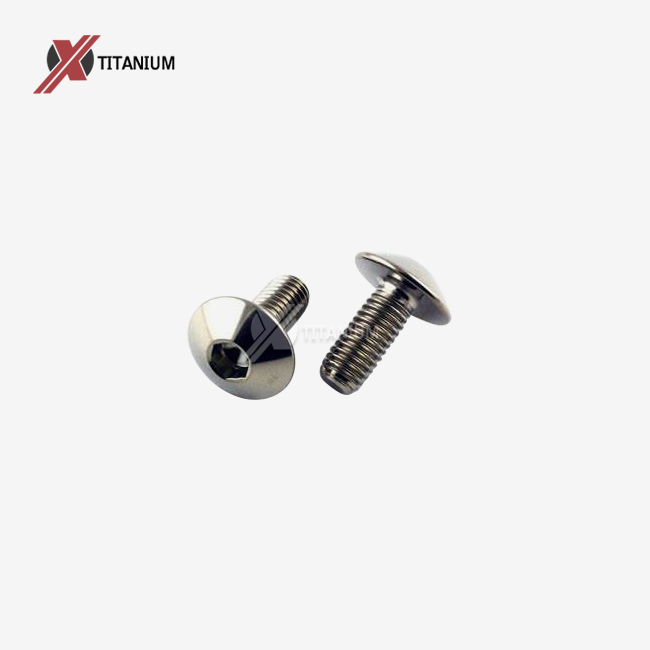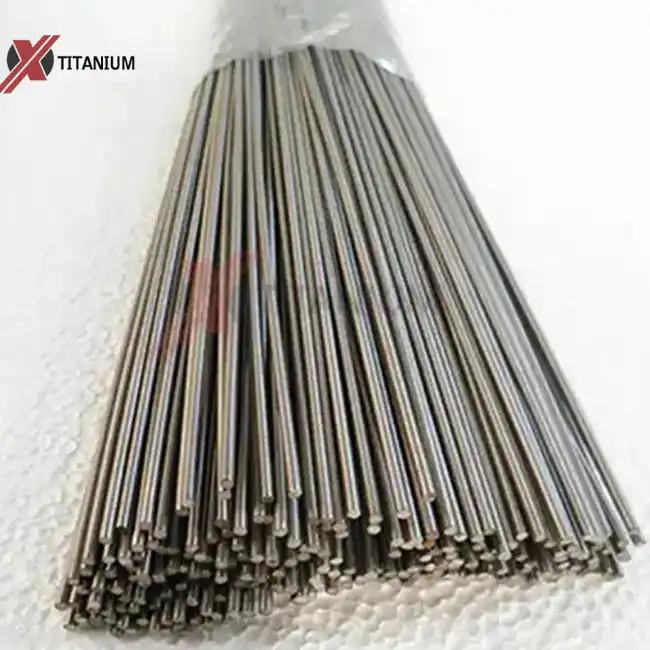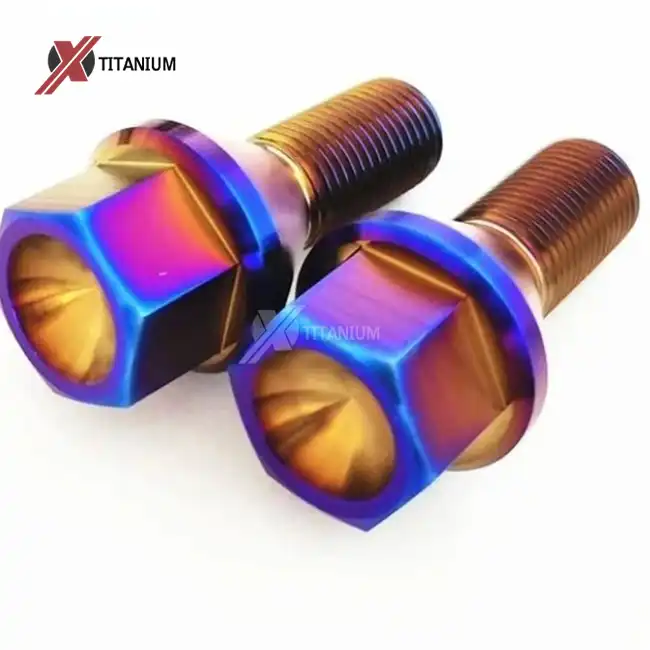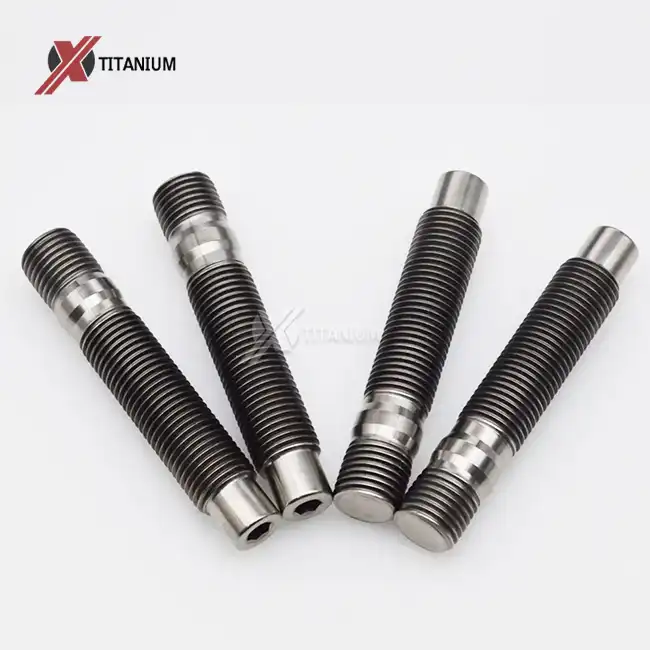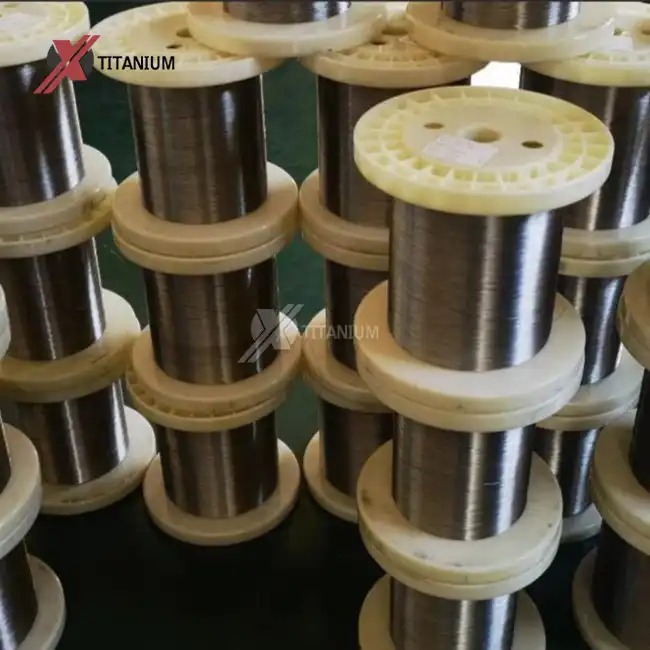The Rise of Titanium Fairing Bolts in Aerospace Applications
Understanding Titanium Fairing Bolts
Titanium fairing bolts are specialized fasteners designed to secure aircraft components, particularly fairings and body panels. These bolts are crafted from high-grade titanium alloys, most commonly Ti-6Al-4V (Grade 5), which offers an optimal balance of strength, weight, and corrosion resistance. The use of titanium in aerospace fasteners has revolutionized aircraft design and performance.
One of the primary advantages of titanium fairing bolts is their exceptional strength-to-weight ratio. Compared to traditional steel fasteners, titanium bolts are approximately 40% lighter while maintaining comparable strength. This weight reduction may seem minimal for a single bolt, but when multiplied across thousands of fasteners in an aircraft, the cumulative weight savings become substantial.
Corrosion Resistance and Durability
Aerospace environments are notoriously harsh, with aircraft exposed to extreme temperatures, humidity, and corrosive substances. Titanium fairing bolts excel in these conditions due to their inherent corrosion resistance. Unlike steel fasteners that may rust or degrade over time, titanium bolts maintain their integrity even when exposed to salt spray, chemicals, and varying atmospheric conditions.
The durability of titanium fairing bolts translates to extended service life and reduced maintenance requirements. This longevity not only enhances safety but also contributes to cost savings for airlines and aerospace companies in the long run. The reduced need for fastener replacement and maintenance checks allows for more efficient operations and increased aircraft uptime.
Thermal Properties and Performance
Another crucial aspect of titanium fairing bolts is their excellent thermal properties. Titanium has a lower coefficient of thermal expansion compared to many other metals, which means it expands and contracts less with temperature changes. This characteristic is particularly valuable in aerospace applications where components are subjected to significant temperature fluctuations during flight.
The thermal stability of titanium fairing bolts ensures consistent performance and maintains the structural integrity of aircraft components across a wide range of operating temperatures. This reliability is essential for the safety and efficiency of modern aircraft, especially in high-performance and supersonic applications.
Manufacturing Processes and Quality Control
Precision Machining and Alloy Selection
The production of titanium fairing bolts involves sophisticated manufacturing processes to ensure precision and quality. Computer Numerical Control (CNC) machining is typically employed to create bolts with exact dimensions and tight tolerances. This precision is crucial for aerospace applications where even minor deviations can have significant implications.
The selection of the appropriate titanium alloy is a critical step in the manufacturing process. While Ti-6Al-4V is the most common choice, other alloys may be used for specific applications. For instance, some aerospace manufacturers may opt for beta titanium alloys that offer even higher strength-to-weight ratios for ultra-lightweight applications.
Surface Treatments and Coatings
To further enhance the performance and aesthetics of titanium fairing bolts, various surface treatments and coatings are applied. Anodizing is a popular treatment that creates a protective oxide layer on the bolt's surface, improving corrosion resistance and allowing for color coding. Other treatments like nitriding can be used to increase surface hardness and wear resistance.
Physical Vapor Deposition (PVD) coatings are sometimes applied to titanium fairing bolts to impart additional properties such as increased lubricity or enhanced aesthetic appeal. These coatings can be customized to meet specific aerospace requirements, further expanding the versatility of titanium fasteners.
Quality Assurance and Certification
The aviation industry requests the most noteworthy measures of quality and unwavering quality. Producers of titanium fairing jolts must follow to exacting quality control measures and certifications. This incorporates compliance with worldwide benchmarks such as ASTM F136 for implant-grade titanium combinations and AS9100 for aviation quality administration systems.
Each clump of titanium fairing jolts experiences thorough testing to guarantee mechanical properties, dimensional precision, and fabric composition meet or surpass indicated prerequisites. Non-destructive testing strategies like ultrasonic assessment and X-ray examination are regularly utilized to distinguish any inside abandons or irregularities in the jolts.
Future Trends and Innovations in Titanium Fairing Bolts
Advancements in Alloy Development
The future of titanium fairing bolts is closely tied to ongoing research and development in titanium alloy technology. Metallurgists and materials scientists are continually working on new alloy compositions that push the boundaries of strength, lightness, and durability. These advancements may lead to the development of titanium fasteners with even more impressive performance characteristics.
One area of focus is the development of titanium alloys with improved fatigue resistance and crack propagation properties. These enhancements could further extend the lifespan of aerospace fasteners and improve overall aircraft safety. Additionally, research into novel alloying elements and heat treatment processes may yield titanium bolts with superior high-temperature performance, opening up new possibilities for hypersonic and space applications.
Integration with Smart Technologies
As the aerospace industry embraces the concept of "smart" aircraft, titanium fairing bolts are also evolving to incorporate advanced technologies. For instance, researchers are exploring the integration of sensors and RFID tags into titanium fasteners to enable real-time monitoring of structural integrity and bolt tension. This innovation could revolutionize aircraft maintenance by allowing for predictive and condition-based maintenance strategies.
Another emerging trend is the development of self-healing titanium alloys. These materials have the potential to automatically repair minor damage or cracks, further enhancing the longevity and reliability of aerospace fasteners. While still in the early stages of research, self-healing titanium fairing bolts could represent a significant leap forward in aerospace fastener technology.
Sustainability and Recycling Initiatives
As the aerospace industry increasingly focuses on sustainability, the recyclability of titanium fairing bolts is becoming a crucial consideration. Titanium's ability to be recycled without loss of quality makes it an environmentally friendly choice for aerospace fasteners. Manufacturers are developing more efficient recycling processes specifically tailored for titanium aerospace components, including fasteners.
Furthermore, the aerospace industry is exploring the use of additive manufacturing (3D printing) techniques for producing titanium fairing bolts. This technology has the potential to reduce material waste, enable more complex designs, and allow for on-demand production of custom fasteners. As additive manufacturing capabilities continue to advance, it may play an increasingly important role in the future of titanium aerospace fasteners.
Conclusion
Titanium fairing bolts are undeniably shaping the future of aerospace fasteners. Their unparalleled combination of strength, lightweight properties, and corrosion resistance makes them indispensable in modern aircraft design. As technology continues to advance, we can expect to see even more innovative applications and improvements in titanium fastener technology.
The aerospace industry's relentless pursuit of efficiency, performance, and safety aligns perfectly with the capabilities of titanium fairing bolts. From commercial airliners to cutting-edge military aircraft and space vehicles, these advanced fasteners will continue to play a crucial role in pushing the boundaries of aerospace engineering.
As we look to the future, it's clear that titanium fairing bolts will remain at the forefront of aerospace fastener technology, driving innovation and enabling the next generation of aircraft to soar higher, faster, and more efficiently than ever before. For more information about titanium fairing bolts and other titanium products, please contact us at info@cltifastener.com or djy6580@aliyun.com.
